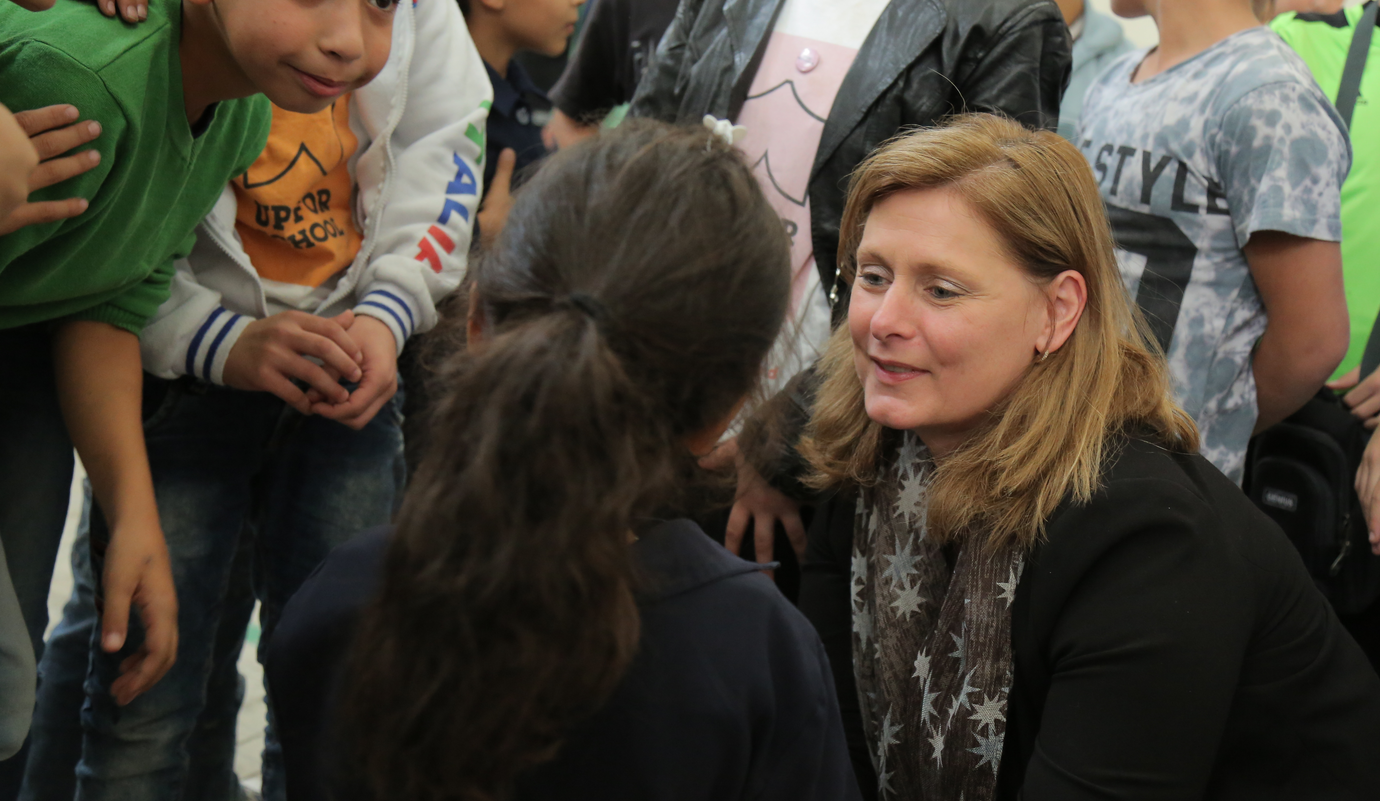
Governments agree draft framework for achieving 2030 education goals
Education funding
A draft framework for action to improve access to education and its quality over the next 15 years has been agreed by the international community.
Government ministers from more than 130 countries, together with NGOs and youth groups, welcomed the move at the World Education Forum 2015 in South Korea.
They adopted the Incheon Declaration on the Future of Education – named after the Korean city where the forum was held. It will underpin the education targets in the Sustainable Development Goals for 2030 to be ratified at the United Nations in September and will encourage countries to provide inclusive, equitable, qualiuty education and lifelong learning opportunities.
Outcome of #WorldEducationForum hailed as huge step forward for education http://t.co/3T1Fid8Yka #Action2015 pic.twitter.com/yTYOfXp3NU
— United Nations (@UN) May 21, 2015
Irina Bokova, Director-General of UNESCO, said: “This declaration is a huge step forward. It reflects our determination to ensure that all children and young people gain the knowledge and skills they need to live in dignity, to reach their potential and contribute to their societies as responsible global citizens.”
The declaration was also welcomed by Justin van Fleet, Chief of Staff for United Nations Special Envoy for Global Education Gordon Brown.
After attending the forum, he said: “The convening of leaders from countries across the globe to discuss how to achieve the next set of global ambitions for univeral education and learning is inspiring.
” With 58 million children still not in primary school… business as usual is nowhere near enough”: @JuliaGillardGPE pic.twitter.com/6az9T6tIH2
— A World at School (@aworldatschool) May 21, 2015
“A real focus has been that we must learn from the past to ensure we address the issues that still remain for the most marginalised, particularly education for children caught up in emergencies. There is also a strong focus on how new partners, including the business community, can play a more transformative role in reaching universal education and learning.”
On the first day of the World Education Forum, Julia Gillard – chair of the Global Partnership for Education – called for stronger political will, financing and commitment to partnership if the new goals are to be met by 2030.
She said: “We need to be audacious to address the enormous challenges we face. With 58 million children still not in primary school and the desire to lift ambition to achieve more years of better quality education for all, business as usual is nowhere near enough.”
Kailash Satyarhi speaks at the forum’s opening ceremony
Child rights activist and Nobel Peace Prize winner Kailash Satyarthi spoke passionately at the forum’s opening session about educating the most marginalised children in the world.
He said: “When a child picks up a pen, the power of a gun in the hands of a soldier weakens.”
He said attacks on schools in Kenya, Syria, Nigeria and Pakistan are proof of how threatened terrorists feel by educated children and urged greater investment in education to ensure no child is left without an education.
Overflowing energy of YAG members @ #WorldEducationForum. @Cee_Bah @bojandejanic @susarenco @GAOSHAN_JUNJIAN pic.twitter.com/0V86rV9uCU
— Youth Advocacy Group (@GEFI_Youth) May 21, 2015
The forum and side events heard inspirational messages on a variety of global education topics. They included one from A World at School co-founder Chernor Bah (in middle of Twitter picture above) on education for refugees.
He said that “youth these days have the dynamism, connections and passion to push the Sustainable Development Goals forward”.
#WorldEducationForum @Cee_Bah and #SouthSudan Minister of Education John Gai Yoah at the conflict panel pic.twitter.com/xIRuyYQSoB
— Hannah Godefa (@hannahgodefa) May 20, 2015
The Global Business Coalition for Education co-organised a panel with the UN Global Compact titled Mobilising Business to Realise the 2030 Education Agenda.
It was chaired by Justin van Fleet and panelists were Jacob Kragh, President, LEGO Education; Vikas Pota, Group Head of Corporate Affairs, GEMS Education and Chief Executive, Varkey Foundation; Martina Roth, Director of Global Education Strategy, Research and Policy -Corporate Affairs Group, Intel Corporation; and Jouko Sarvi, Practice Leader for Education, Asian Development Bank.
Thanks to panelists and @gbceducation and @globalcompact for such a good session. #WorldEducationForum https://t.co/CNnbShbtx3
— Justin W. van Fleet (@justinvanfleet) May 21, 2015
The aim was to demonstrate how the private sector works with other education actors and how it will be a critical actor to support the implementation of the SDGs.
The key themes were sharing learnings, partnership, dialogue and shifting mindsets about private sector engagement and motivations for investing in education.
How can companies support the implementation of the #SDGs? Learn from @gbceducation members http://t.co/qOhftXEKgz pic.twitter.com/hKGHundUFB
— GBCEducation (@gbceducation) May 22, 2015
During the panel, Mr Kragh mentioned a report that GBC-Education co-published with the UN Global Compact titled Investing in Education: Lessons from the Business Community. You can learn more about it here and download the report.
The World Education Forum was attended by more than 130 government ministers, high-level government officials, Nobel Prize Laureates, heads of international and non-governmental organisations, academics, representatives of the private sector, researchers and other key stakeholders.
More news

